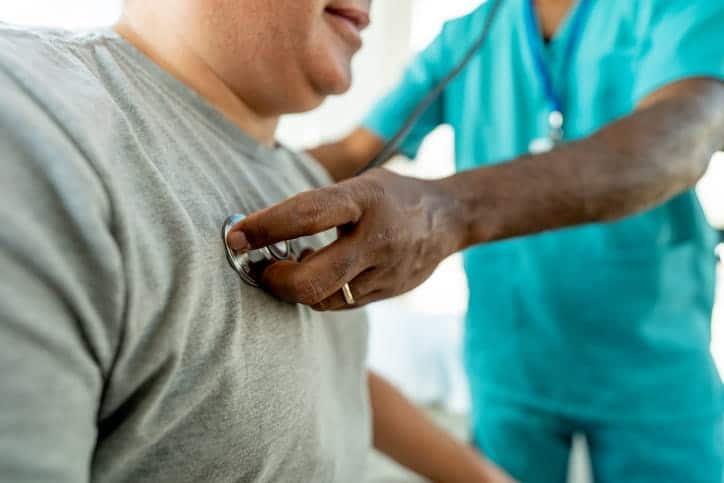When was the last time you went to the doctor? If you’re scratching your head trying to remember, you’re not the only one. Many of us put off going to the doctor until something feels wrong. But here’s the thing: waiting could end up costing you big time. In this article, we’ll talk about why regular check-ups are so important and how they can save you money (and headaches) in the long run.
Read more about Health
What Are Regular Check-Ups?
What do we mean by regular check-ups? These are visits to your doctor when you’re feeling fine. They’re not about fixing a problem; they’re about making sure everything’s running smoothly. Think of it like taking your car for a tune-up before it breaks down on the highway.
Why Bother with Check-Ups?
You might be thinking, “If it isn’t broken, don’t fix it,” right? Well, here’s why that thinking could get you into trouble:
-
Catch Problems Early
Many health issues start small. They’re like tiny weeds in a garden. If you catch them early, they’re easy to deal with. But if you wait, they can grow into big, scary problems. Regular check-ups help your doctor spot these “weeds” before they take over.
-
Save Money in the Long Run
Sure, going to the doctor costs money. But treating a serious illness costs way more. It’s like fixing a small leak in your roof versus waiting until your ceiling caves in. Which one do you think is cheaper?
-
Stay on Top of Your Health
Your body changes as you get older. Regular check-ups help you understand these changes. It’s like getting updates on your body’s “operating system.”
-
Peace of Mind
Knowing you’re healthy (or dealing with issues early) can take a huge weight off your shoulders. It can be likened to having a security system for your house – you sleep better knowing everything’s okay.
What Happens During a Check-Up?
Okay, so you’re convinced regular check-ups are important. But what happens during one? Here’s a quick rundown:
- Chat with Your Doctor: They’ll ask about your health, habits, and any concerns you have.
- Physical Exam: The doctor will check things like your blood pressure, heart rate, and weight.
- Blood Tests: These can spot all sorts of issues, from high cholesterol to diabetes.
- Other Screenings: Depending on your age and gender, you might need things like mammograms or prostate exams.
- Vaccinations: Your doctor will make sure you’re up to date on important shots.
Sign up for the Connect Nigeria daily newsletter
How Often Should You Get Check-Ups?
This is where things get a bit tricky. There’s no one-size-fits-all answer. It depends on things like:
- Your age
- Your gender
- Your family history
- Your overall health
As a general rule, most adults should aim for a check-up every 1-3 years. But the best thing to do is ask your doctor what schedule is right for you.
Making the Most of Your Check-Ups
Want to get the most value for your money? Here are some tips:
- Be Honest: Your doctor isn’t there to judge you. Tell them the truth about your habits, good and bad.
- Come Prepared: Write down any questions or concerns you have before your visit.
- Bring Your Meds: If you’re taking any medications, bring them with you or make a list.
- Know Your History: Family health history can be super important. Ask your relatives about any health issues that run in the family.
- Follow Through: If your doctor recommends tests or follow-ups, don’t put them off.
Overcoming Check-Up Anxiety
Let’s face it, going to the doctor can be scary. Here are some ways to make it less stressful:
- Bring a Friend: Having someone with you can make you feel more comfortable.
- Speak Up: If something makes you nervous, tell your doctor. They can often find ways to make you more comfortable.
- Remember the Benefits: Focus on how good you’ll feel knowing you’re taking care of your health.
- Reward Yourself: Plan something fun after your check-up, like a nice meal or a movie.
The Cost of Waiting
Still not convinced? Let’s talk about what can happen if you skip those regular check-ups:
- Silent Killers: Things like high blood pressure and high cholesterol often have no symptoms until it’s too late.
- Missed Screenings: Skipping check-ups might mean missing important cancer screenings that could save your life.
- Stress and Worry: Not knowing about your health can lead to constant worry and stress.
- Higher Costs: Treating advanced diseases is almost always more expensive than preventing them or catching them early.
Register to attend the CN Business Mixer
Final Thoughts
Regular check-ups might seem like a hassle, but they’re one of the best things you can do for your health and your wallet. They’re your chance to catch problems early, save money in the long run, and get peace of mind about your health. Your health is your most valuable asset. Taking care of it shouldn’t be a luxury or an afterthought. It’s an investment in yourself, your future, and your loved ones. So, when was the last time you had a check-up? If it’s been a while, maybe it’s time to pick up the phone and make an appointment.
Got a suggestion? Contact us: [email protected]


